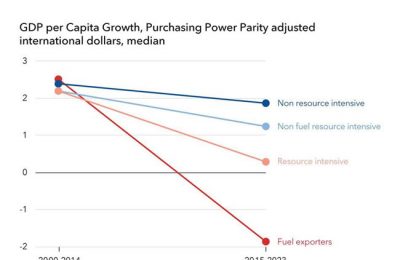
ISLAM consists mainly of two features. One is the six articles of faith which are belief in the oneness and Indivisibility of Almighty Allah; belief the the angels; belief in the Holy Books; belief in all the 104 prophets and messengers of Allah; belief in the Day of Judgment; and belief in destiny or pre-measurement (qadar) which is the timeless knowledge of God that anticipates events and those events take place according to the exact knowledge of God (Qur’an 2:136; 16:49; 15:9; 2:136; 5:13; 18:29).
The second feature of Islam is worship. This translates the faith into action. Muslims demonstrate their faith through the five daily prayers (salat); annual and regular alms to the poor (zakat and sadaqat); fasting in the month of Ramadan and performance of holy pilgrimage to Makkah and Madinah (hajj) at least once in a lifetime. (Qur’an 4:103; 2:110; 2:183-187; 3:97).

The faith and acts of worship form the five pillars of Islam. And the five daily prayers are considered the foundation of Islam.
Any Muslim who fails to observe his daily prayers (salat) without a reasonable excuse is committing a serious offence and heinous sin. Men and the jinn have been created by Allah to worship Him alone (Qur’an 51:56). And the five daily prayers are obligatory for every Muslim to demonstrate their faith in the Supreme Being (Qur’an 24:56).
“When ye pass congregational Prayers, celebrate the praises of God, standing, Sitting down, or lying Down on your sides; But when ye are free from danger, set up Prayers: for Such Prayers are enjoined on Believers At stated times” (Q. 4:103).
Indeed, the five daily prayers drive man away from sin. It restrains man from shameful acts. It makes man eschew unjust deeds. It makes man abstain heinous acts. It directs man towards the remembrance of God as a lesson in discipline and willpower.
Salat directs man towards the praises of God as a practice in devotion to God and a seed of spiritual cultivation and moral soundness. It physically challenges man to submit himself to the Supreme Being as an obedient servant of God. It makes man to humbly submit to God to earn inner peace and stability. It imbues in man a high sense of regular duty to God to earn patience and courage, hope and confidence.
The performance of the five daily salat manifests the nothingness of man as the young and old, rich and poor, weak and powerful stand equally before God to worship. It demonstrates solid unity and brotherhood among Muslims as we stand equally, bow equally, prostrates equally, and sit equally before God to worship Him.
And the five daily prayers make man express appreciation and gratitude to Almighty God for our being and His mercies.
Just as in other acts of worship, the five daily prayers have basic conditions. Firstly, salat is obligatory only for Muslims who profess to the unity and indivisibility of Allah. Secondly, salat is obligatory for Muslim males and females that are sane and responsible. Thirdly, salat is compulsory for the relatively matured, those that have reached puberty, normally about 14 years. But children should be encouraged to observe salat from the age of seven, and strongly urged by the age of 10.
Salat can only be observed in a state of purity. We must be free from the impurities of the mind, shirk, i.e., associating partners with God; impurities of the body like urinating defecating, intercourse, menstruation, childbirth and others.
The necessary cleaning with water and ritual births should be observed, especially ritual bath (Ghusul Janabah) for intercourse; Ghusul Hailah for menstruation after five to 10 days; Ghusul Nifas for child birth after 40 days. Almighty Allah declares in Qur’an 4:43: “O ye who believe! Approach not prayers with a mind befogged until ye can understand all that ye say nor in a state of ceremonial impurity (except when travelling on the road) until after washing your whole body if ye are ill or on a journey or one of you cometh from offices of nature or ye have been in contact with women and ye find no water then take for yourselves clean sand or earth and rub therewith your faces and hands. For God doth blot out sins and forgive again and again.”
The requirements of the five daily prayers include purity of the whole body and clothes worn against all kinds of dirt and impurity; two, performing the water ablution (Wud’u) or sand ablution (Tayammum) in the absence of water or if we are ill or on a journey; three, dressing properly to meet the moral regulations. Dresses for the male must be up to the knee; the female must cover the whole body except the faces, hand and the feet; and four, facing the direction of the Kabbah in Makkah (Qiblah) in a neat environment.
An authentic Hadith of the Holy Prophet Muhammad (SAW) states that if a Muslim performs the five daily prayers in a proper state of purity and at the times prescribed, they will be a light and a proof for him on the Day of Resurrection. But he who misses the salat will be resurrected along with Pharaoh and Haman” (Abu Daud).
However, the performance of the five daily prayers at the prescribed times is very important. The Fajr prayer (Subhi) is the first, and should be observed after the dawn and before sunrise. The noon prayer (Zuhr) is the second, and should be observed by noon. The mid-afternoon prayer (Asr) is the third and should be observed after the expiration of the noon prayer and extends to sunset. The sunset prayer (Maghrib) is the fourth and should be observed immediately after sunset. And the evening prayer (Ishai) is the fifth, and should be observed beyond sunset till a little before dawn (Qur’an 2:43; 4:103; 5:55: 8:3,9,70).
Almighty Allah declares in Qur’an 11:114-115 that: ”And establish regular prayers At the two ends of the day And at the approaches of the night : For those things that are good Remove those that are evil : Be that the word of remembrance To those who remember (their Lord) : And be steadfast in patience ; For verily God will not suffer The reward of the righteous To perish.”
Obligatory (Fard) prayers in Islam include the five daily prayers. There is also the Friday noon congregation salat which replaces Salatul-Zuhr, and the funeral prayers (Salat Jananza). Failure to observe these prayers without reasonable excuse constitutes sin. We also have supererogatory prayers (Sunnah and Wajib) which include the prayers accompanying the obligatory prayers, and the congregations of Eid-l-fitr (after Ramadan fast) and Eid-l-Adha (Festival of Sacrifice). Failure to observe these is a harmful negligence and a reproachable conduct.
Another kind of prayer is the optional ones which include all voluntary prayers at any time of the day and night such as Salatu Hajjat, Salatu-Tasbih, Kiyamu-Layl, Tahajjud, and Salatu-Du’a (Qur’an 5:15, 17: 79, 32:16, 73: 1-8). There is also oral supplication where we raise our hands in prayer to Almighty God requesting for good in this world and in the Hereafter in our respective languages.
Prayer is the key to Paradise as stated by Prophet Muhammad (SAW), and it is the sword by which the believers conquer the vagaries of life.
May Almighty Allah grant us the patience, zeal and zest to observe salat regularly. Ameen.







